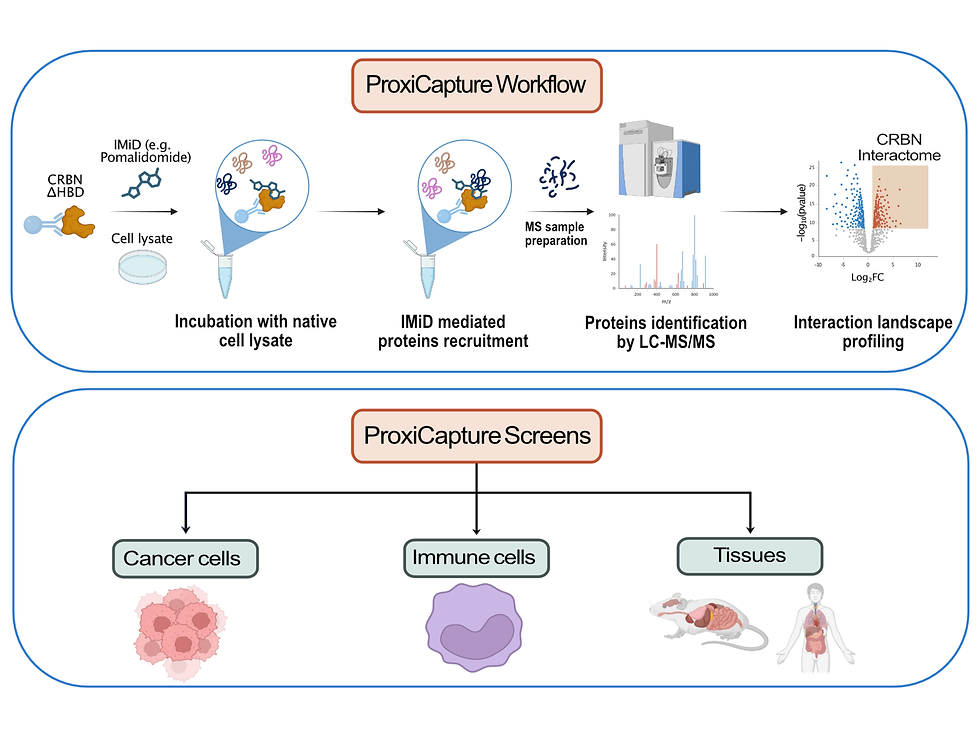Induced degradation of FKBP51 enables more efficient drugs to control the stress hormone response
- Nov 10, 2023
- 1 min read
The protein FKBP51 is an important regulator of stress hormone receptors and a potential target for the treatment of depression, obesity or diabetes. However, recent biochemical findings have shown that currently available substances bind to FKBP51, but do not block its regulatory effect on stress hormone receptors.
In a recent publication in the renowned journal Angewandte Chemie, the Hausch lab at the Technical University Darmstadt has developed so-called PROTACs (Proteolysis Targeting Chimeras) for FKBP51. This makes it possible for the first time to pharmacologically degrade the complete FKBP51 protein in living human cells instead of only inhibiting parts of it, as it was previously the case. “FKBP51 tunred out to be extremely resistant to induced protein degradation,” explains Thomas Geiger, first author of the publication. “Unlike for the smaller protein relative FKBP12, over 220 PROTAC variants had to be syn
thesized and tested before the molecule SelDeg51 was found that has sufficient activity selectivity in cells.”
These studies, partially funded through the Zukunftscluster PROXIDRUGS, open up a fundamentally new approach to target the molecular functions of FKBP51. The next steps, which are partially supported by the GOBio initial project MoProX, are to further developed this into improved medications for stress-related diseases.




